Iranians Continue Rallies In Europe, Australia To Support Protesters
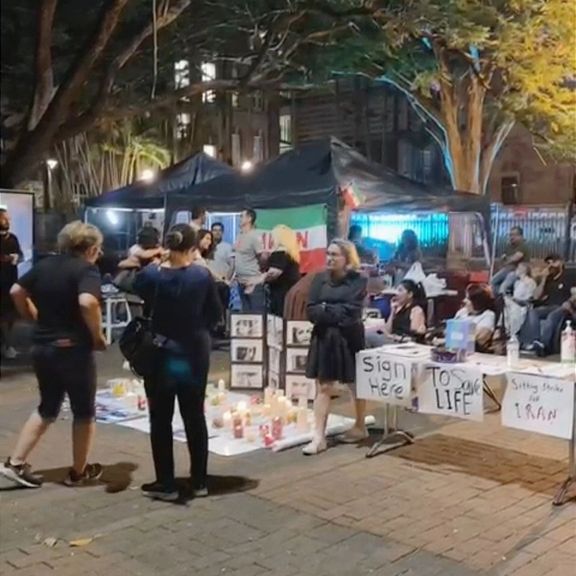
Iranian communities in several European cities held rallies Friday in support of protests in Iran and to demand the closure of Islamic Republic’s missions in Europe.

Iranian communities in several European cities held rallies Friday in support of protests in Iran and to demand the closure of Islamic Republic’s missions in Europe.
Iranian Australians also held a protest in Brisbane outside the regional parliament of Queensland. The crowd sand protest songs and displayed photographs of civilians killed by government forces since September, when nationwide protests began after the death in police custody of Mahsa Amini who was arrested for ‘improper hijab’.
In Europe, Iranians gathered in Stockholm and Frankfurt demanding freedom for imprisoned journalists in Iran and urging European countries to cut ties with the Islamic Republic.
Iranians who have settled in Europe hold regular protests for three months. The community in Stockholm is one of the most active. Sweden’s Foreign Minister Tobias Billström visited the rally expressing support for rights of protesters in Iran and condemning the execution of young people by the clerical regime.
Iranians in Frankfurt gathered outside Islamic Republic’s consulate demanding that Germany expel all regime diplomats. A group of protesters have camped at the location for the past 24 days and have gone on a hunger strike. German media covered the Frankfurt rally.
The Italian Senate in Rome was the venue of a conference Friday in support of protesters in Iran, with the participation of Italian Iranians. The foreign affairs committee of the Italian Senate was the organizer of the event to hear the views of the Iranian community.
Iranian in Britain had held rallies and protests on Thursday in Newcastle, Birmingham, Glasgow and London.

The United States on Thursday blacklisted a Chinese video surveillance equipment maker accusing the company of selling technology to Iran’s Revolutionary Guard.
NBC News reported Friday that Tiandy Technologies firm has used its facial recognition software to help Chinese authorities identify Uyghurs or other ethnic minorities. It has also provided Iran’s IRGC with the technology as well.
The Commerce Department sanctions against Tiandy restrict American firms from exporting components to the company.
The processors for Tiandy’s video recording systems were provided by California-based semiconductor giant Intel Corporation. However, Intel had removed references to Tiandy from its website before the decision was announced by the Biden administration, added NBC News.
Intel Corp. spokesperson Penny Bruce told NBC News Thursday that the company ceased doing business with the Chinese company “following an internal review.”
Tiandy is a private firm based in the northern city of Tianjin, which ranks among the top video surveillance companies in China and the world.
An industry survey says the annual sales revenue of Tiandy was more than $800 million in 2021, but it has branches in over 60 countries.
The Financial Times also wrote Thursday that Washington is set to put the chipmaker Yangtze Memory Technologies on a trade blacklist, in its latest efforts to target Chinese technology companies that it believes threaten the country’s security.
It comes two months after the Biden administration unveiled harsh export controls that made it more difficult for Beijing to acquire and produce advanced semiconductors.

Protests have become a regular thing in Iran with students starting the action before noon and people carrying the torch throughout the evening and night hours.
On Thursday, a protester, identified as Aida Rostami, was announced dead by the regime. She was a physician who was arrested because she was treating injured protesters at their homes. Her body showed signs of torture, with one of her eyes removed and half of her face crushed. The regime says she was killed in a car accident.
For many people the sound of morning azan (Adhan), the call for prayers in Islam, is now associated with the execution of their fellow compatriots as the Islamic Republic tends to hang them first thing in the morning.
Iranians have been holding protests for three months now, after the death in custody of Mahsa Amini convulsed the country into its boldest protest movement. Since the beginning in mid-September, people were protesting against the regime, demanding fundamental freedoms. In the following weeks, people also started protesting the bloody crackdown on dissent that has resulted in the deaths of about 500 people, including 60 children. But in recent weeks, the main issue added to the discourse of the protesters -- and their supporters from all over the globe – is the execution of people arrested in the protests.
Every day the regime is killing more protesters on streets or handing them harsh prison sentences, but such brutalities do not intimidate many, as intended.
Another protester, 22-year-old Donya Farhadi, was a university student from Ahvaz, and was arrested during protests several days ago. On Thursday, her body was found in Karoun river, while there are reports that she was tortured to death.
Even when the regime releases a protester and people gather to celebrate, the gathering soon morphs into an antigovernment demonstration, as was the case for Sonia Sharifi, a 16-year-old girl who had been arrested during rallies in Abdanan, located in the south of Ilam province who was released on Thursday.
On Friday, people in the capital Tehran held a gathering at the city’s cemetery for the 40th day after the death of Ali Rouzbahani. His brother said at the gathering that he stood against the regime's bullets because he knew he was supported by all the people. "We are not afraid of your guns and bullets. It doesn't matter whether you kill in Tehran, Kordestan, Khuzestan or Zahedan," he said.
Also on Friday, residents of several cities in the southeastern province of Sistan-Baluchestan poured into streets after prayers, chanting slogans against the regime. Since the Islamic Republic has started executing protesters, a new term has found its way to peoples’ slogans, roughly translated into the “Islamic Republic of execution.” People in the cities of Rask, Zahedan, and several other cities of the province held rallies, calling for an end to death sentences and hangings.
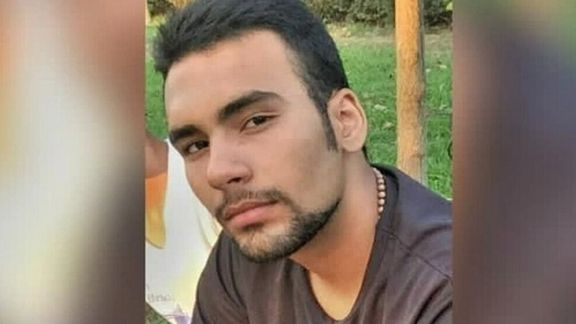
Foreign Ministers of Australia, Canada and New Zealand have released a joint statement to condemn the execution of protesters in Iran.
Penny Wong, Mélanie Joly and Nanaia Mahuta said in the statement Friday that a dark chapter in Iran’s recent history unfolds and “we are responding in defense of all of its citizens.”
The Iranian regime’s brutality against its own people, in particular its women and girls, is unrelenting, and the situation is only worsening, they said.
“Iran’s security forces persist with draconian methods to ruthlessly suppress peaceful protestors, including the use of lethal force and senseless violence against women and children. Hundreds have lost their lives and thousands languish in detention, among them an unknown number of children,” reads the statement.
The ministers said we are appalled by Iran's execution of protestors since December 8.
“Nothing can justify these shameful actions. We oppose the death penalty in all circumstances for all people, everywhere.”
They called on the regime to immediately establish a moratorium to halt all executions and to end this brutal and inhumane punishment.
“The Iranian regime’s violence must end, and there must be justice and accountability for the countless, egregious human rights violations committed since the outbreak of protests,” stressed the foreign ministers.
Iran has executed two prisoners on charges of injuring and killing security forces. Mohsen Shekari and Majidreza Rahnavard both were detained during anti-government protests following the death of Mahsa Amini in mid-September.
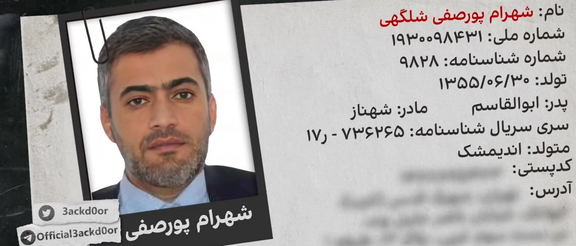
A Syria-based commander of the Revolutionary Guard’s Qods (Quds) extraterritorial force was behind a failed operation to assassinate two former US officials.
Hacktivist group Backdoor (3ackd0or) provided Iran International with documents that proves Mohammad-Reza Ansari, was one of the commanders of the Quds Force unit 840 based in Syria who led the operation to assassinate former US Secretary of State Mike Pompeo and former national security advisor John Bolton, apparently in retaliation for the US targeted killing of top IRGC commander General Qasem Soleimani.
Soleimani was killed in Baghdad along with nine others in January 2020 by a drone strike ordered by President Donald Trump, a huge blow to the regime, which was heavily dependent on him to lead its proxies across the region. Many Islamic Republic officials and military commanders have vowed revenge for Soleimani, and every year around the time of his death anniversary, such threats are echoed by the regime.
According to the leaked documents, an IRGC envoy went to Washington January 16, 2022, to carry out the plan, but the IRGC was not unaware that an individual hired to kill Bolton in exchange for $300,000 was actually an FBI informant.
The planner of the botched plot, who had recruited agents in the United States, was Shahram Poursafi, who was charged by the Department of Justice in August with plotting to assassinate Bolton. Poursafi is a 46-year-old Quds Force officer operating under the pseudonym "Mehdi Rezaei".
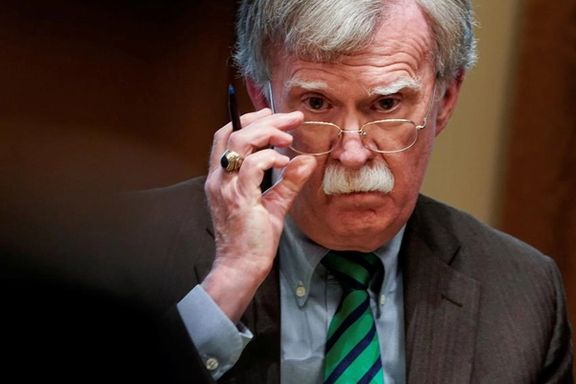
The Justice Department statement cited court documents suggesting Poursafi launched the plan to kill Bolton, either in Washington, the District of Columbia, or Maryland in October 2021 by asking an unnamed individual – whom he met online – to take photographs of Bolton, ostensibly for a book Poursafi was writing. The individual concerned introduced Poursafi to a second person whom he offered $250,000, later increased to $300,00, to eliminate the ex-presidential advisor.
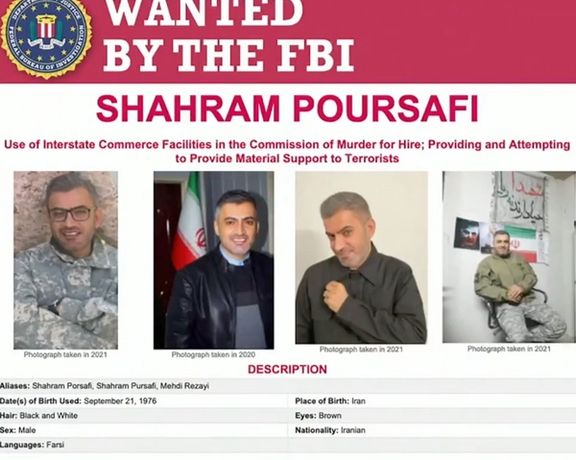
Poursafi, who is at large, had told the hired “killer” about the job that it did not matter how the murder was carried out but that he would need video confirmation of Bolton’s death. He had emphasized that it is better to assassinate Bolton before the second anniversary of Qassem Soleimani's death. Poursafi also promised the person to pay $1 million for his next target, who was supposed to be Pompeo. Poursafi is now apparently in Iran and participates in clubhouse chat rooms with his photo and under the name of "Mehdi Rezaei," defending the policies of the IRGC and the Islamic Republic.
Poursafi, along with Mohammad Hossein Shahmoradi an intelligence commander in Tehran and Abolfazl Alizade, is a member of the team headed by Mohammad Reza Ansari, who is one of the commanders of Unit 840 of the Quds Force and is stationed in Syria.
Unit 840 is a very secretive group within the Quds Force and there are usually no photos of its members available. The unit’s mission is to conduct operations against Western targets and Iranian opposition groups and individuals. There is no mention of Unit 840 in Iranian media. The existence of such a unit has only been reported by Israeli media which in November 2020 reported that Israeli Defense Forces (IDF) had accused Unit 840 of placing explosives at the Syrian border. Colonel Hassan Sayyad-Khodaei, who was shot dead behind the wheel of his car outside his home in Tehran on May 2022 was one of the previous commanders of the elite Qods Unit 840.
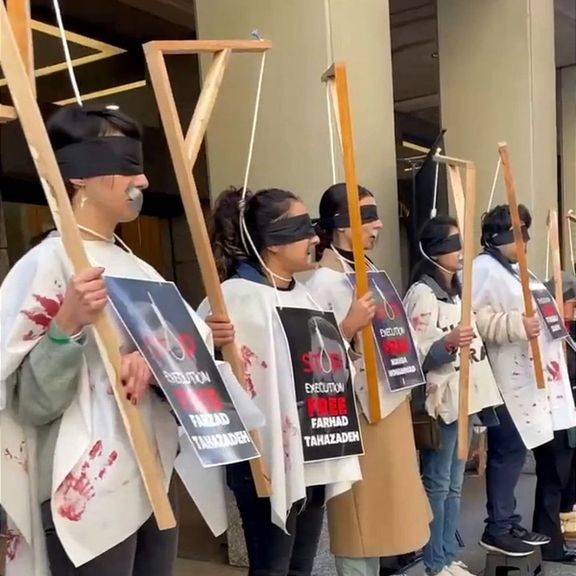
Thousands of Iranians took to the streets in tens of European and American cities to show support for the uprising against the Islamic Republic.
Demonstrations and protest gatherings of Iranians abroad have increased in the past days, while the international community has intensified pressure on the Islamic Republic for to its brutal crackdown on protesters.
San Francisco, Sacramento, Rome, Hamburg, and London were among the cities where Iranian diaspora communities held gatherings on Wednesday and Thursday.
In Australia, hundreds gathered in front of the Embassy of the Islamic Republic in Canberra, in protest at the execution of two protesters and the deadly crackdown by security forces.
The demonstrators chanted slogans against the Islamic Republic and Supreme Leader Ali Khamenei demanding the cancellation of death sentences and execution of the detainees.
The Australian government also stressed its support for the Iranian protesters, and the country's Foreign Minister Penny Wong welcomed the removal of the Islamic Republic from the UN Commission on the Status of Women due to severe violations of human rights and oppression of women and girls.
On Tuesday, Berlin's Brandenburg Gate was also illuminated with the slogan “Woman, Life, Freedom” in a show of solidarity with protesters in Iran.
“It is an important sign of solidarity that we are standing here together at the Brandenburg Gate, at the landmark, the Berlin symbol of freedom, and that we are making clear: woman, life, freedom,” said Franziska Giffey, Governing Mayor of Berlin.